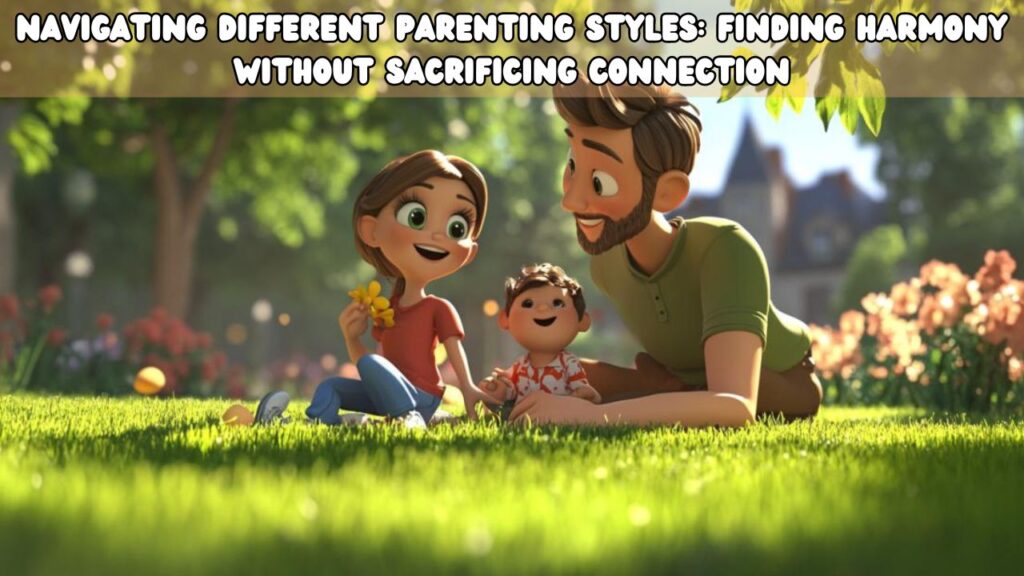Message to Dr. Hart
From: Mateo
Age: 36
Partner: 30
Duration: 7 years
From: United States
“Hi Dr. Hart, my wife Isabelle and I have been together for 7 years, and we recently had our first child. While we’ve always communicated well, we’re now finding ourselves clashing over parenting styles. I’m more structured, preferring routines and clear boundaries, while Isabelle is more relaxed and believes in going with the flow. These differences have led to some tension, and I’m worried it could negatively impact our relationship and confuse our child. How can we better handle these differences without it affecting our connection as a couple or our child’s well-being?”
Dr. Seraphina Hart’s Response:
Dear Mateo,
Thank you so much for reaching out. It’s wonderful that you’re seeking guidance as you and Isabelle navigate this new chapter of parenting. Parenting is one of life’s most rewarding yet challenging experiences, especially when you and your partner come from different perspectives. It’s not uncommon for couples to feel a bit of tension as they try to find balance between two distinct approaches—structured and relaxed, in your case.
The key thing to remember is that these differences don’t mean one approach is better than the other. In fact, they can be an opportunity for growth, both in your relationship as a couple and in how you raise your child. Parenting is rarely a one-size-fits-all process, and by blending both of your styles, you can create a well-rounded, supportive environment for your child. Isabelle’s more relaxed approach could foster creativity, adaptability, and independence, while your structured style may provide the consistency, boundaries, and security that children also need.
It’s completely normal to feel some friction as you try to merge these different methods. What’s important is how you respond to this friction. Rather than viewing your differences as obstacles, think of them as complementary strengths that, when combined thoughtfully, can lead to a richer, more balanced parenting approach. With the right communication and a willingness to compromise, these varying styles can actually enhance your child’s upbringing while strengthening your partnership.
By approaching this challenge as a team, you’ll not only develop a parenting strategy that works for both of you, but you’ll also create a more harmonious environment where your child can thrive.
Why Parenting Styles Differ

Before we explore how to handle your parenting differences, it’s essential to understand why you and Isabelle approach parenting the way you do. Parenting styles are rarely formed in isolation—they are shaped by a combination of factors including how you were raised, your individual personalities, life experiences, and even cultural or societal influences.
For many people, childhood experiences play a significant role in shaping their parenting beliefs. For example, you, Mateo, might have been raised in a structured environment where routines, rules, and clear expectations were prioritized. That upbringing could have led you to associate structure with stability, which, as a parent, feels necessary to ensure your child’s security and healthy development. You may also have a personality that naturally prefers order, predictability, and planning, making you more inclined to establish routines and clear boundaries for your child.
On the other hand, Isabelle’s relaxed approach might stem from a different background. Perhaps she was raised in a more flexible environment where creativity, exploration, and adaptability were encouraged. Her personality may lean toward spontaneity, valuing emotional expression and freedom over strict rules. For her, the goal might be to cultivate a sense of independence and resilience in your child, fostering emotional flexibility and creativity.
It’s important to note that neither of these approaches is inherently right or wrong. Both styles bring something valuable to the table. The key is to handle these differences with care and mutual respect, recognizing that your varied approaches can complement each other. When blended thoughtfully, your parenting styles can offer your child the benefits of both structure and freedom—two vital elements for their overall growth and development.
When to Seek Professional Support

While open communication and compromise can go a long way in managing different parenting styles, there may come a point when your disagreements feel overwhelming or persistent. If your parenting conflicts begin to intensify and create significant tension in your relationship, it’s important to recognize when outside help could be beneficial. Couples therapy can be an invaluable resource for navigating these challenges in a constructive and supportive way.
Many couples hesitate to seek professional support because they feel they should be able to resolve their differences on their own, or they fear it signals a major problem in the relationship. However, reaching out for help doesn’t mean you’ve failed—it’s actually a proactive and healthy step that can prevent deeper issues from forming. A trained couples therapist can help you both explore the root of your parenting differences, identify patterns in communication that may be causing conflict, and provide practical tools to improve how you work together as parents.
Therapy offers a neutral, non-judgmental space where both partners can openly express their concerns, frustrations, and desires without fear of being misunderstood or dismissed. A therapist can guide you in developing a shared parenting philosophy that respects both of your values and approaches, while also keeping the best interests of your child at the forefront. Often, the simple act of having a third-party mediator can bring clarity and reduce emotional escalation during difficult conversations.
You don’t have to wait until the situation feels unbearable to seek therapy. Sometimes, even a few sessions can provide new insights and techniques that greatly improve how you communicate and compromise. Early intervention can prevent smaller disagreements from escalating into larger issues, allowing you and your partner to grow together and strengthen both your relationship and your parenting approach.
If you notice that arguments are becoming more frequent, you’re struggling to resolve disagreements on your own, or you feel a growing emotional distance between you and your partner, it might be time to consider professional support. Taking this step can make a world of difference, ensuring that both your relationship and your family continue to thrive.
Conclusion: Embracing the Strengths of Both Parenting Styles

Mateo, it’s important to remember that the fact you and Isabelle have different approaches to parenting doesn’t have to create ongoing tension or conflict. In fact, these differences can actually become one of your greatest strengths as a couple, offering your child a richer, more balanced upbringing. The key is how you choose to approach these differences. By maintaining open, honest communication, practicing compromise, and focusing on your shared love for your child, you can find a middle ground that honors both your parenting styles.
Your structured approach, which emphasizes routine and consistency, can provide a strong foundation for your child, giving them the stability and clear expectations they need to feel secure. Meanwhile, Isabelle’s more relaxed style can foster creativity, emotional intelligence, and adaptability—qualities that are just as essential for a child’s development. When blended thoughtfully, these two approaches can complement one another beautifully, providing your child with both the structure they need and the flexibility that allows them to thrive.
The fact that you’re already seeking advice shows that you’re on the right path. You’re committed to finding a solution that benefits your family, and that willingness to learn and grow will serve you well as you move forward. By working together with mutual respect and empathy, and by being open to creative solutions, you and Isabelle can develop a parenting style that works for both of you.
Ultimately, your child will benefit from this balanced approach, growing up with the best of both worlds—security and freedom, structure and creativity. At the same time, you and Isabelle will strengthen your partnership, deepening your bond as you navigate this journey together as a team.
Warmly,
Dr. Seraphina Hart
Dr. Seraphina Hart, PhD, is a relationship therapist with over two decades of experience in the field of psychology and human behavior. With a rich academic background from Stanford University, she has an in-depth understanding of the complexities of interpersonal relationships. Dr. Hart's journey began with a deep fascination with the human mind and how it forms emotional connections, leading her to specialize in relationship therapy.
Her compassionate approach and unique methodology are informed by her extensive study of various therapeutic modalities, including Cognitive Behavioral Therapy (CBT), Emotionally Focused Therapy (EFT), and mindfulness techniques. Dr. Hart believes in the power of empathy and understanding in healing and transforming relationships. With her guidance, clients learn to navigate their emotions, communicate effectively, and foster a deep sense of self-awareness.







You may like
Should I Marry Someone with Debt? Navigating Love, Money, and Future Together
Dealing with an Overbearing Mother-in-Law: How to Set Boundaries Without Harming Your Marriage
How to Apologize Effectively in a Relationship: 7 Steps to Show You Truly Care